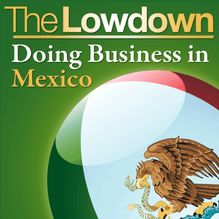-
 Univers
Univers
-
 Ebooks
Ebooks
-
 Livres audio
Livres audio
-
 Presse
Presse
-
 Podcasts
Podcasts
-
 BD
BD
-
 Documents
Documents
-
- Cours
- Révisions
- Ressources pédagogiques
- Sciences de l’éducation
- Manuels scolaires
- Langues
- Travaux de classe
- Annales de BEP
- Etudes supérieures
- Maternelle et primaire
- Fiches de lecture
- Orientation scolaire
- Méthodologie
- Corrigés de devoir
- Annales d’examens et concours
- Annales du bac
- Annales du brevet
- Rapports de stage
La lecture à portée de main
Vous pourrez modifier la taille du texte de cet ouvrage
Découvre YouScribe en t'inscrivant gratuitement
Je m'inscrisDécouvre YouScribe en t'inscrivant gratuitement
Je m'inscrisEn savoir plus
Vous pourrez modifier la taille du texte de cet ouvrage
En savoir plus

Description
Sujets
Informations
| Publié par | Creative Content |
| Date de parution | 26 juin 2010 |
| Nombre de lectures | 0 |
| EAN13 | 9781906790554 |
| Langue | English |
Informations légales : prix de location à la page 0,0150€. Cette information est donnée uniquement à titre indicatif conformément à la législation en vigueur.
Extrait
THE LOWDOWN: Doing Business in Mexico
Written by Christopher West
THE LOWDOWN: DOING BUSINESS IN MEXICO
First published in 2010 By Creative Content Ltd, Roxburghe House, Roxburghe House, 273-287 Regent Street, London, W1B 2HA. Copyright © 2010 Creative Content Ltd
The moral right of Christopher West to be identified as the author of this work has been asserted by them in accordance with the Copyright, Designs and Patents Act, 1988.
All rights reserved. No part of this publication may be reproduced or transmitted in any form by any means, electronic or mechanical, including photocopying, recording or any information storage and retrieval system, without prior permission in writing from the publisher nor be otherwise circulated in any form or binding or cover other than that in which it is published.
In view of the possibility of human error by the authors, editors or publishers of the material contained herein, neither Creative Content Ltd. nor any other party involved in the preparation of this material warrants that the information contained herein is in every respect accurate or complete and they are not responsible for any errors or omissions, or for the results obtained from the use of such material. The views expressed in this publication are those of the author and do not necessarily reflect the opinion or policy of Creative Content Ltd. or any employing organization unless specifically stated
Typesetting by CPI Rowe Cover Design by Daniel at HCT Design
ISBN 978-1-906790-55-4
www.creativecontentdigital.com
Welcome to "Doing Business in Mexico".
We’re going to give you the lowdown on how to do business in Mexico, using cultural and social know-how to get the best results.
These are quick-and-easy tips for business people who plan to visit Mexico. There’s a bit of travel advice and some cultural background, but it’s not a tourist guide.
With a population of 111 million, Mexico is the world’s 11th most populous country, and the world’s most populous Spanish-speaking country. Ranked 13th among the world’s economies, a little behind India and ahead of South Korea, its growing population, growing middle class, and proximity to the United States make it a key market in which to do business, as it diversifies away from an over-dependence on oil and tourism.
There is nothing particularly difficult or complicated about doing business in Mexico, but the proximity to the United States can encourage people to draw false conclusions – and the different kinds of business protocol you may encounter could surprise you.
The approach we’ll take will be broadly chronological:
How to make initial contact
How to plan your trip
How business meetings are run
Social activities that may accompany a business visit
How to follow up and (hopefully) close the deal
Nailing the deal down: contracts and labor issues
To avoid awkward male-female references, we’ll normally use the male gender as we discuss things. However, you’ll find Mexican businesswomen at all levels and in all kinds of Mexican businesses – though women still tend to be in a minority at the very top levels of business and government.
Mexico is a good place to do business, but you may find it takes longer to close a deal than would be the case in the UK or the US, and you may be confronted with unexpected regulatory or legal hurdles. Patience, good humor and a positive attitude will help you enormously, and will be appreciated by your Mexican counterparts. An attempt to speak even a little Spanish – one of the world’s easier languages to learn – will also be appreciated, though most people in international business have an intermediate to advanced knowledge of (usually American-style) English.
Let’s get started.
Q: What I read about Mexico in the newspapers and see on the television sometimes makes me feel nervous: the government appears to be at war with drug traffickers in some parts of the country, and the level of violence is worrying.
A: It’s true that for some years now the military as well as the police have been attempting to control the drug gangs, who engage in more or less continuous turf wars. There are some decidedly dangerous cities: Ciudad Juárez, across the border from El Paso in Texas, is one of them.
However, it’s very unlikely that you would be exposed to violence or danger in a typical business situation, even in cities where the crime rate is high. Do take sensible precautions, of course, using transport provided by your hotel or your business contact – unless you speak Spanish fluently and are reasonably familiar with your location – and avoiding walking in isolated areas. Be smart – personal appearance does tend to count for more than is often the case in the UK or the US, particularly when people first meet – but avoid wearing ostentatious watches or jewelry. Credit cards are accepted almost universally, so there’s no need to carry a lot of cash, and ATMs are easily found in hotels, supermarkets, and the like – but avoid using them in the street if possible.
Q: Is it a difficult place to do business culturally?
A: ` Usually, not at all – but you should be aware that there are at least three types of business culture, and behavior differs in each.
Firstly, there are the subsidiaries of foreign multinationals. The United States and Spain perhaps have the largest number of subsidiaries in Mexico, but there are companies belonging to multinationals from all over the globe. Here, the culture of the HQ of the multinational usually prevails, so a subsidiary of a US company will tend to do its management accounts following US GAAP (Generally Accepted Accounting Practices), and follow US habits, perhaps starting and finishing relatively early in the day by Mexican standards and taking a buttoned-down no-nonsense approach to negotiations. A subsidiary of a Spanish company will do its management accounts following European IFRS (International Financial Reporting Standards) and may well work later and longer hours, with a longer break at lunch time. Senior staff will usually speak English fluently, as well as the language spoken in their corporate HQ, if it’s not English.
Secondly, there are the Mexican multinationals and larger Mexican national companies. Some of the largest cement and glass manufacturing groups in the world are headquartered in Mexico. These companies will typically lean toward a US way of doing business and it’s likely some of the senior executives will have postgraduate degrees from US universities. Most senior staff will speak English fluently.
Thirdly, there are the Mexican family companies. "Family" should not be taken to mean "small," as there are some very large companies run by two or even three generations of the same family. Such companies vary widely in culture, with some having the characteristics of multinationals, while others exhibit the traditional traits of the Mexican family-held company, such as excessive deference to family members and all important decisions (and perhaps even some that aren’t very important) being passed up the line to the head of the family.
There are two other cultural differences the visitor should be aware of:
Firstly, salary spreads between the highest- and lowest-paid employees are much greater than is normally the case in the US or western Europe, and either because of this, or perhaps for unrelated reasons, there tends to be a greater sense of hierarchy in many Mexican companies. Senior executives will tend to have private offices and many will have several support staff. In the second and third business categories we talked about, don’t be surprised if the most senior people never take notes and correspond intermittently, if at all: they will want to understand the big picture and will ultimately take the decisions, but you may need to spend a considerable amount of time working on the detail with more junior people, either before gaining access to senior executives, or in parallel with your meetings with them.
Secondly, the culture varies to some degree with geographical location. The north of Mexico, bordering on the US, adopts US business practices more widely than the south, which borders on Guatemala. Not surprisingly, Mexico City, in the geographical center of the country, reflects a mid-way practice. Broadly speaking, the further north your business takes you, the more appointments you are likely to be able to fit into your working day, and the more likely you are to be negotiating with a fluent speaker of (American) English. Your visit may be squeezed in to the busy schedule of a senior executive in Monterrey, the industrial capital of Mexico, located just 100 miles from the US border, while it may be the highlight of the day of a senior executive in Mérida, in the southeast, and he may well take the trouble to show you something of the city and take you to a leisurely lunch.
Q: So, bearing in mind these differences, is it usually possible to close deals quickly and efficiently?
-
 Univers
Univers
-
 Ebooks
Ebooks
-
 Livres audio
Livres audio
-
 Presse
Presse
-
 Podcasts
Podcasts
-
 BD
BD
-
 Documents
Documents
-
Jeunesse
-
Littérature
-
Ressources professionnelles
-
Santé et bien-être
-
Savoirs
-
Education
-
Loisirs et hobbies
-
Art, musique et cinéma
-
Actualité et débat de société
-
Jeunesse
-
Littérature
-
Ressources professionnelles
-
Santé et bien-être
-
Savoirs
-
Education
-
Loisirs et hobbies
-
Art, musique et cinéma
-
Actualité et débat de société
-
Actualités
-
Lifestyle
-
Presse jeunesse
-
Presse professionnelle
-
Pratique
-
Presse sportive
-
Presse internationale
-
Culture & Médias
-
Action et Aventures
-
Science-fiction et Fantasy
-
Société
-
Jeunesse
-
Littérature
-
Ressources professionnelles
-
Santé et bien-être
-
Savoirs
-
Education
-
Loisirs et hobbies
-
Art, musique et cinéma
-
Actualité et débat de société
- Cours
- Révisions
- Ressources pédagogiques
- Sciences de l’éducation
- Manuels scolaires
- Langues
- Travaux de classe
- Annales de BEP
- Etudes supérieures
- Maternelle et primaire
- Fiches de lecture
- Orientation scolaire
- Méthodologie
- Corrigés de devoir
- Annales d’examens et concours
- Annales du bac
- Annales du brevet
- Rapports de stage

















